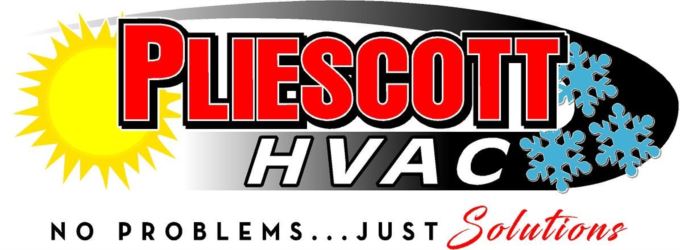
Purchasing your first home is exciting. You’re likely juggling a dozen things or more to ensure you’re making the right choice. We believe that understanding your potential new HVAC system is vital. The property’s HVAC system represents a significant investment and source of potential long-term costs, so being thorough should be a top priority for first-time homebuyers.
In this guide, we’ll outline seven tips for discovering all there is to know about a home’s heating and cooling setup. And if you want a more in-depth opinion from the pros, don't hesitate to contact Pliescott HVAC Services LLC. Our experienced team can weigh in on your options with industry insights that are second to none.
1. What HVAC System Are You Working With?
Start by determining what specific HVAC system the home features. Furnaces tend to last longer than air conditioners, and relatively new types of HVAC systems like heat pumps can offer average life spans that are even longer. Knowing the make and specific model ensures you have a much better sense of how much routine maintenance it might need.
2. How Old Is the Current HVAC System?
Another good idea is to find out how old the HVAC system is when you're looking at a potential new home. For the most part, HVAC systems should survive for around 10-12 years. Having the knowledge of when it was installed helps you plan for possible repair needs or when it might shut down for good. Older systems may be more vulnerable to problems, so fiscal planning for a replacement unit might be needed faster than expected.
3. Is the Warranty Active?
Don’t forget to look into whether the HVAC system is covered by a warranty. If it is, this can assist with maintenance costs. HVAC warranties typically include parts and labor, but it's important to note that details will vary. Don’t forget to look into any terms that aren’t familiar to make sure you fully understand your coverage and the likelihood of out-of-pocket costs.
4. Does the System Have a Documented Maintenance History?
Don't forget to check the maintenance history of the HVAC system, if the records are available. This kind of information can reveal if the system constantly broke down or how often a tune-up was scheduled. Ask about records for key tasks like filter changes, which means it enjoyed more regularly scheduled tune-ups.
5. Do You Know Its Energy Efficiency Ratings?
Purchasing a home with a heating and cooling system with strong energy efficiency can lead to more manageable utility bills and a smaller environmental impact. Look for the seasonal energy efficiency ratio (SEER) ratings for air conditioning along with the annual fuel utilization efficiency (AFUE) for furnaces. The higher the SEER rating, the more efficient the cooling over the whole season, while strong AFUE ratings indicate that the fuel is more effectively burned for useable heat.
6. Can You Spot Trouble After Your Own Inspection?
Even if you don’t have experience in HVAC systems, it's still a good idea to examine the HVAC system yourself. Watch closely for any concerning items that weren’t mentioned by the seller or real estate agent. This includes strange noises, spots with uneven heating or cooling and attempts at concealing any visible damage.
7. Have You Asked Your Local HVAC Professional?
If you're not quite sure about the current state of the HVAC system, it's never a bad idea to get a professional opinion from certified HVAC professionals. They are skilled at identifying things you might not, like leaks in the refrigerant, bad electrical connections or damaged ductwork.
A Call with Pliescott HVAC Services LLC Simplifies Your Home-Buying Journey
Choosing your first home is meant to be a joyful event, and Pliescott HVAC Services LLC wants to ensure that doesn’t change. Connect with us at 410-228-4822. We can discuss how our HVAC services give you peace of mind, giving you what you need to dive into home-ownership with confidence.
